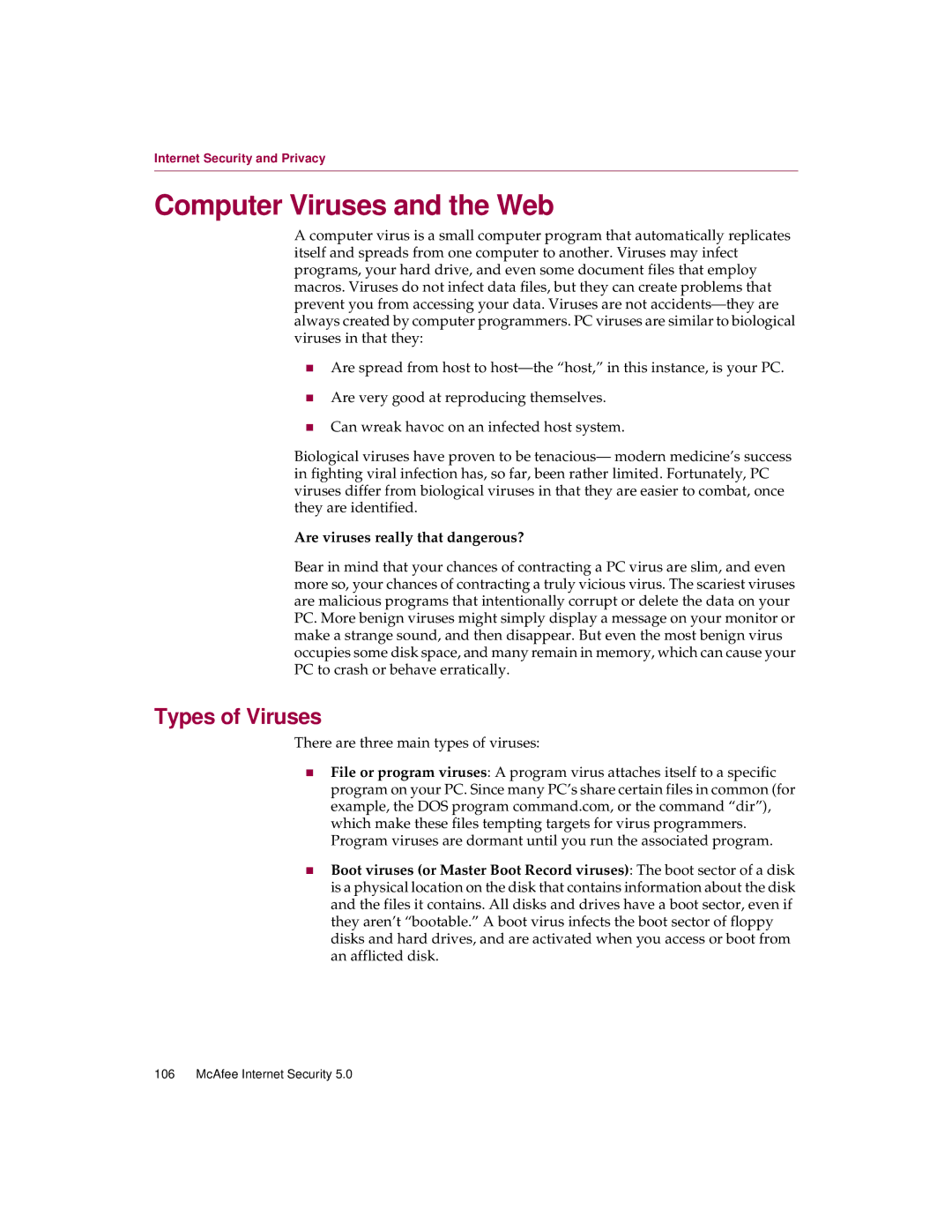Internet Security and Privacy
Computer Viruses and the Web
A computer virus is a small computer program that automatically replicates itself and spreads from one computer to another. Viruses may infect programs, your hard drive, and even some document files that employ macros. Viruses do not infect data files, but they can create problems that prevent you from accessing your data. Viruses are not
nAre spread from host to
nAre very good at reproducing themselves.
nCan wreak havoc on an infected host system.
Biological viruses have proven to be tenacious— modern medicine’s success in fighting viral infection has, so far, been rather limited. Fortunately, PC viruses differ from biological viruses in that they are easier to combat, once they are identified.
Are viruses really that dangerous?
Bear in mind that your chances of contracting a PC virus are slim, and even more so, your chances of contracting a truly vicious virus. The scariest viruses are malicious programs that intentionally corrupt or delete the data on your PC. More benign viruses might simply display a message on your monitor or make a strange sound, and then disappear. But even the most benign virus occupies some disk space, and many remain in memory, which can cause your PC to crash or behave erratically.
Types of Viruses
There are three main types of viruses:
nFile or program viruses: A program virus attaches itself to a specific program on your PC. Since many PC’s share certain files in common (for example, the DOS program command.com, or the command “dir”), which make these files tempting targets for virus programmers. Program viruses are dormant until you run the associated program.
nBoot viruses (or Master Boot Record viruses): The boot sector of a disk is a physical location on the disk that contains information about the disk and the files it contains. All disks and drives have a boot sector, even if they aren’t “bootable.” A boot virus infects the boot sector of floppy disks and hard drives, and are activated when you access or boot from an afflicted disk.
106 McAfee Internet Security 5.0
